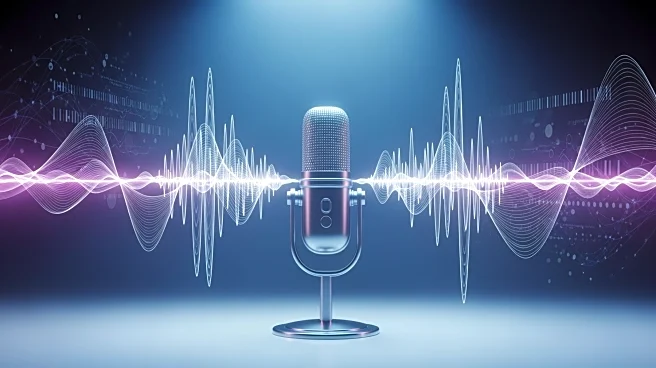What's Happening?
Subtle Computing, a California-based startup, has introduced voice isolation models designed to improve the performance of voice-based AI products in noisy environments. The technology aims to capture
and understand user voices in settings such as loud cafes or offices, where traditional voice recognition systems struggle. The startup's approach involves training specific models tailored to the acoustics of individual devices, rather than using a one-size-fits-all model. This method reportedly offers better performance and personalized solutions for users. Subtle Computing was founded by Tyler Chen, David Harrison, Savannah Cofer, and Jackie Yang, who met at Stanford University. The company has raised $6 million in seed funding from Entrada Ventures and other investors, including notable figures like Twitter's Biz Stone and Pinterest's Evan Sharp.
Why It's Important?
The development of effective voice isolation technology is significant as it addresses a major challenge in the growing field of voice-based AI applications. By improving voice recognition in noisy environments, Subtle Computing's technology could enhance the usability and reliability of AI meeting note-takers, voice transcription services, and other consumer apps. This advancement has the potential to increase user adoption and satisfaction, thereby driving growth in the voice AI market. Additionally, the partnership with Qualcomm suggests that Subtle Computing's technology could be integrated into a wide range of devices, further expanding its impact.
What's Next?
Subtle Computing plans to announce a consumer product that combines both hardware and software next year, although specific details have not been disclosed. The startup is also collaborating with a consumer hardware brand and an automotive brand to deploy its solutions, indicating potential expansion into new markets. As the company continues to develop its technology, it may face competition from other firms in the voice AI space, but its focus on voice isolation could provide a competitive edge.
Beyond the Headlines
The ethical implications of voice isolation technology include concerns about privacy and data security, as improved voice recognition could lead to more detailed data collection. Additionally, the cultural impact of enhanced voice AI could change how people interact with technology, potentially leading to increased reliance on voice interfaces in everyday life.












